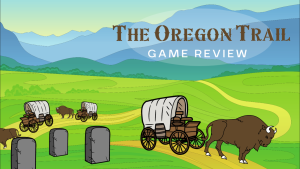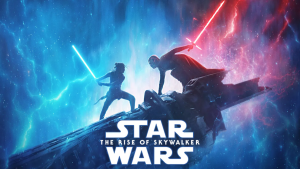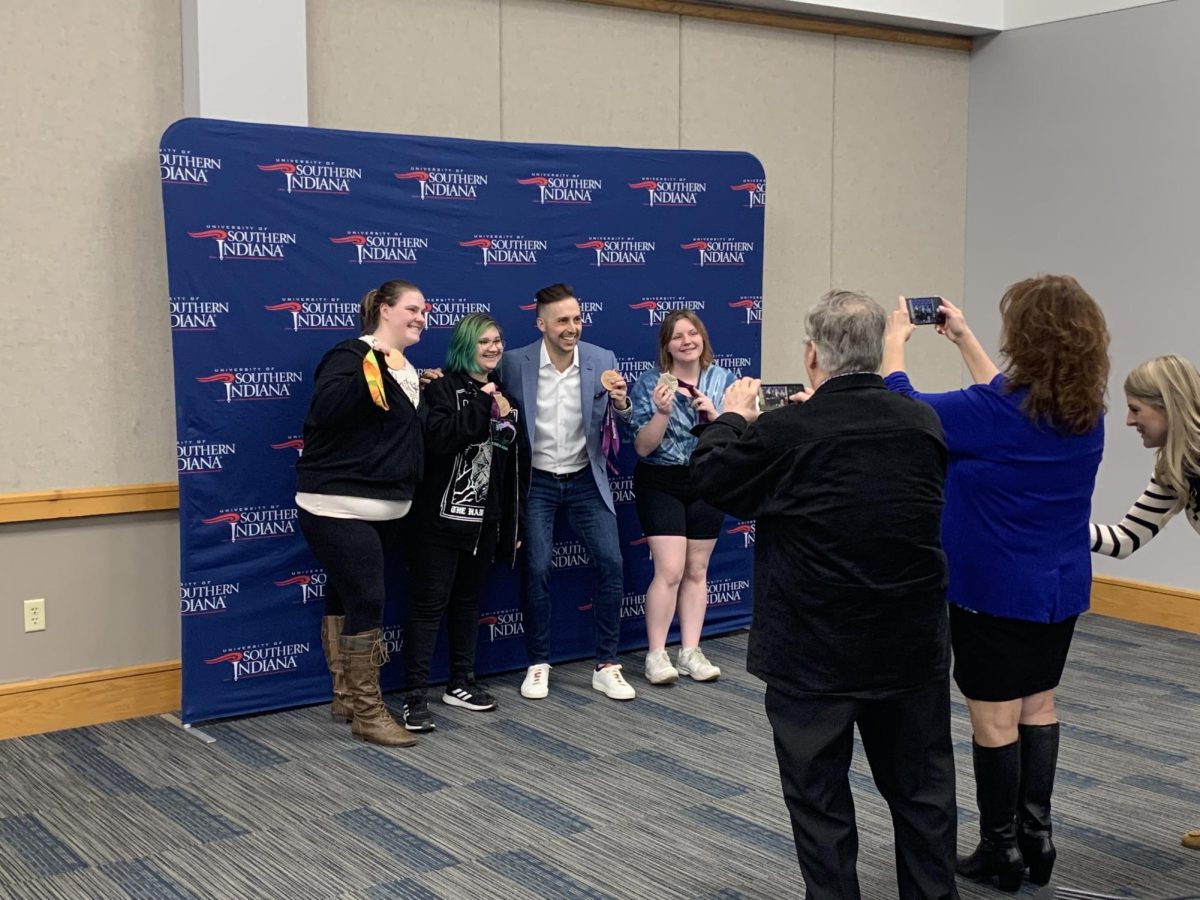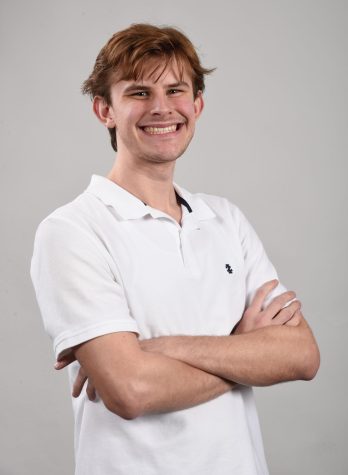Tucker Dupree, Paralympic swimmer, visited campus to speak for Disability Awareness Month Thursday in Carter Hall. A meet-and-greet was held afterward.
Dupree was diagnosed with Leber’s hereditary optic neuropathy in 2006, which results in an 80% loss of vision over time, according to USI’s press release.
He recalled his optometrist saying he was “around one of 9,000 people that have it in the world.”
“No one could figure out why I couldn’t see until around December of that year,” Dupree said. “ I remember sitting there saying, ‘Okay, so what’s next?’ She said, ‘Well, we’re gonna do a couple of tests, but I want you to know that losing your vision can be very depressing, there isn’t any treatment for this condition, and if you need to talk to any of our psychiatrists or if you want to have a conversation about it with someone, we have those resources available.’”
Dupree said he “checked out” after he heard what his optometrist said but knew he still wanted to swim in college.
He said swimming was an environment where he felt equal.
“I didn’t have to talk about losing my vision,” Dupree said. “I only had vision loss in my left eye at that time, so I really had this feeling of ‘this is my sanctuary’ when I’m in the pool because I put my face in the water, and I don’t have to talk to anybody about it.”
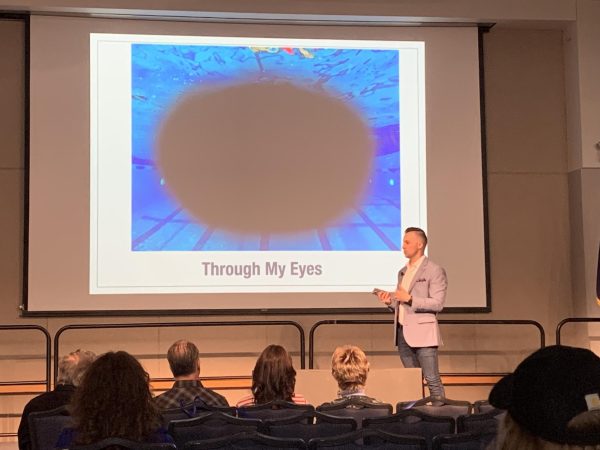
He said by February 2007, he could not see which part of a traffic light was illuminated.
“I looked around to the cars around me, I noticed when they went I went, and I drove safely into my parents’ neighborhood, drove into their driveway, put my car into park, reached back in my wallet, grabbed my driver’s license, and I took the keys out of the ignition,” Dupree said. “I remember holding my keys and my driver’s license in my hand that day, and thinking that this is actually probably the last time I’ll ever get to sit here.”
He said that while trying to get recruited to swim, people mentioned Elexis “Lex” Gillette, a blind Paralympic track athlete from Raleigh, North Carolina. He sent Gillette an email saying he would love to have lunch, connect and hear about his journey.
When hearing his speech, I think it can really be uplifting and helpful for those who are experiencing a similar problem in the sense of giving them hope that there is more in this role than their disability because a big thing in this world is that disabilities control us versus we control them.”
— Jade Corwin-Maxwell, senior bachelor of professional studies major
Dupree said he and Gillette went to the mall and talked.
“He said, ‘Hey, I know that you’re a swimmer,’ and he’s like, ‘You ever heard of the Paralympics?’ And I was like, ‘Never, what’s the Paralympics?’ He’s like, ‘It’s the same thing as the Olympics, but it’s for people with physical disabilities,’” Dupree said. “He was like, ‘Well, you’ve got to get classified because in Paralympics, we want to make it as easy as possible.’”
Dupree said everyone in the Paralympics has a different classification.
He has set multiple world and American records in swimming.
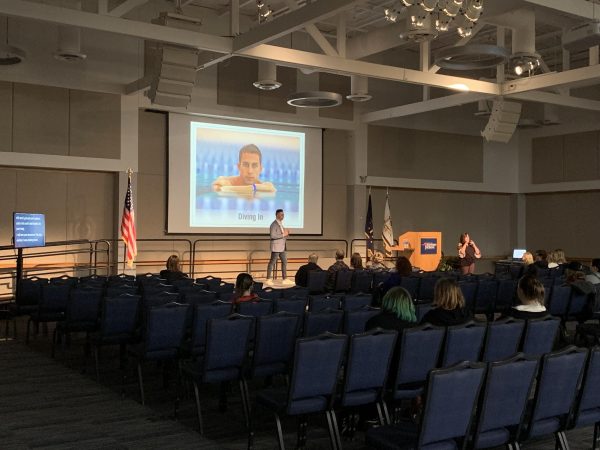
“I’m swimming against people with the same visual impairment that I have, not racing against someone who’s missing their leg,” Dupree said. “Obviously, I have both of mine.”
Caitlyn Whitler, junior social work major, said the presentation was interesting.
“Just having events like these helps with students maybe wanting to learn more about blindness and/or deafness because having an interpreter was wonderful,” Whitler said.
Whitler said people have a preconceived notion of those with disabilities.
“As a person, they see them in a lower region, just because they believe that although they can do certain things, they can’t do them as well as a person who is able-bodied,” Whitler said. “And I think that’s a horrible preconceived notion, and I’m so glad that we went to this because although he was working with the Paralympics, it definitely does indicate that, like, yes, people who are blind and people who are deaf can do just as much if not more than people who are able-bodied.”
And I think the biggest thing for me is about really changing perspective that people with disability are looking for special treatment, when the reality is we’re just looking for inclusion.”
— Tucker Dupree, Paralympic swimmer
Melissa Yumrutepe, freshman biochemistry major, said Dupree’s achievements are a major breakthrough for changing perceptions.
“Because he’s able to get his word out there, that others may not have been able to, be like, ‘Hey, just because I’m blind doesn’t mean I can’t win an Olympic medal,’” Yumrutepe said.
Jade Corwin-Maxwell, senior bachelor of professional studies major, said it was a beautiful presentation that piqued her interest.
“When hearing his speech, I think it can really be uplifting and helpful for those who are experiencing a similar problem in the sense of giving them hope that there is more in this role than their disability because a big thing in this world is that disabilities control us versus we control them,” Corwin-Maxwell said.
Dupree said he was excited to come back to talk about inclusivity and accessibility, and seeing two interpreters at the event was huge.
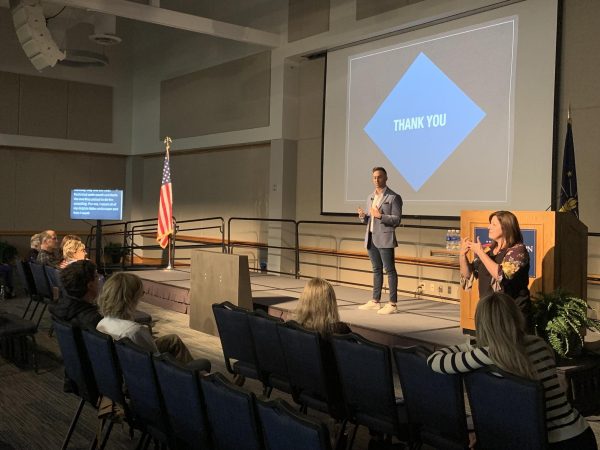
“It’s good to see a university walk the walk and not just talk about it,” Dupree said.
He said the Paralympics gives people with disabilities the platform to show that people with disabilities can be elite athletes.
“I always say that people with disabilities are people first, even in that sentence, the word ‘people’ comes first,” Dupree said. “And I think the biggest thing for me is about really changing perspective that people with disability are looking for special treatment, when the reality is we’re just looking for inclusion.”
Just having events like these helps with students maybe wanting to learn more about blindness and/or deafness because having an interpreter was wonderful.” — Caitlyn Whitler, junior social work major
Durpee said having these conversations puts people with disabilities front and center and lowers the guard for most people. He also said everyone has challenges every day.
“How you face those challenges is really a reflection of your tenacity, and I think that you don’t have to have a disability to be faced with them, right?” Dupree said. “So I think that it’s really your core values for yourself, and what you’re going to do is going to change the world. So make sure that you leave your fingerprint wherever that’s going to be.”
Dupree said students should figure out what their legacy will be.
“I would say just really figure out how you’re going to leave your legacy because you have that moment right now as a student and really trying to change the future,” Dupree said. “So think outside of the box and really make that difference.”


